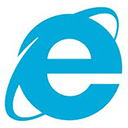March, 2015 Desktop Market Share: Google Chrome, Firefox, Safari, Opera – Up; Internet Explorer – Down
Another month, another report.
As Microsoft continues to work on the Project Spartan, Internet Explorer’s market share keeps sliding down, this time by 0.84 point, from 57.38% to 56.54%.
Continue Reading
Firefox For Android Crosses The 100 Million Downloads Mark
 If you though that Firefox for Android is used only by a very small amount of people then the latest news might change your mind.
If you though that Firefox for Android is used only by a very small amount of people then the latest news might change your mind.
According to Mozilla, the mobile version of Firefox has now been downloaded more than 100 million times from the Google Play store alone. In addition to that, it has been consistently rated with more than 4.0 stars, which is a pretty neat accomplishment.
However, what was not revealed was a number of active users, so who knows how many of these are actually same user re-downloading or (possibly) updating the app.
Continue Reading
UC Browser Comes To Windows
 From mobile to desktop.
From mobile to desktop.
It looks like the success of UC Browser on handheld devices has allowed developers to invest and create the desktop version of the very same browser as well.
Available for Windows, it comes in two flavors: Global and Indian and features many of the features that you would expect: Cloud Sync, Speed Dial, Themes and so on. And yes, it’s another Chromium web browser.
On a downside, the install is pretty sneaky as the advanced options icon is sort of hidden, not to mention “Set as default browser” option, which is set by default and tries to trick you when you open UC Browser for the very first time with this:
Continue Reading
Google Chrome Will Have A Much Better Scrolling Performance
 Thanks to Microsoft.
Thanks to Microsoft.
Even though Microsoft and Google are always fighting these weird battles (at least when it comes to the Internet drama, from Scroogled campaigns to Windows Phone users blocking), it looks like the search giant has seen the light and will be implementing some of the Microsoft technologies.
The technology we’re talking about is Pointer Events API, which is already used in the Internet Explorer, Opera and Firefox.
Despite obvious benefits such as improved scrolling due to a combination of touch and mouse events into a single set, Google has resisted the change and focused on improving their own APIs instead. However, the pressure from the developers did change their mind
Continue Reading
Firefox 37 Will Encrypt Non HTTPS Traffic
 Grab it now.
Grab it now.
In an effort to protect its users privacy, the developers of Firefox web browser have made some serious changes that will allow to encrypt non https (http://) traffic.
How is that even possible? You can thank opportunistic encryption, a technique, which encrypts the communication when connecting to another system. As a result, Firefox will route HTTP (port 80) requests that are usually sent in the cleartext to a port of server administrator’s choice. In addition to that, users won’t experience any delays as connections will be fully established before they are even used.
Continue Reading
Download Opera 30 Developer Preview
 With one new and usable goodie.
With one new and usable goodie.
Now here’s an update that many people should appreciate. Thanks to the community feedback and Opera’s desire to please its users, the latest developer preview build includes a feature, which makes its easier to switch between old and current tabs.
How is it called? A tab cycler. Basically, you can now cycle through the tabs with keyboard shortcuts (Ctrl + 1/2 for Windows and Linux and ⌘ + ⇧Shift + ←/→ for Mac). In addition to that, Recently Closed tabs will now appear in the same area with its own section as well as other devices tabs.
Continue Reading
Microsoft Bends Over, Changes Its Mind Regarding DNT
 Ad agencies rejoice.
Ad agencies rejoice.
Remember when Microsoft was all pro consumer, pro privacy and all that? Resulting in praises from various companies and users after it was decided to enable Do Not Track (DNT) by default in both IE10 and IE11?
Well, the good news are over as Microsoft has just changed its mind and won’t be enabling such feature by default.
Why? The recent W3C draft update now includes the following: “The basic principle is that a tracking preference expression is only transmitted when it reflects a deliberate choice by the user. In the absence of user choice, there is no tracking preference expressed”
Continue Reading
Video: Project Spartan On Windows 10 Mobile
 Guys at WPXap have got their hands on the latest available Windows Phone 10 (Build 12534), which also includes Project Spartan.
Guys at WPXap have got their hands on the latest available Windows Phone 10 (Build 12534), which also includes Project Spartan.
Starting from around the 1:57 mark, you can see it in action and so far it’s pretty slow and unimpressive, obviously, that’s a pre-release software with all kinds of tools running in the background to speed up the debugging process
See the video after the break.
Continue Reading
Google Removes Almost 200 Extensions From The Chrome Store
 Sneaky ad injecting extensions is a no go.
Sneaky ad injecting extensions is a no go.
Good news for users and bad for developers, thanks to a recent crackdown by Google, the search giant has identified and removed a total of 192 Google Chrome extensions that have been injecting ads to millions of users.
As it turns out, more than 5% of all people that have visited Google sites have had at least one ad injector installed and all in all, it has affected a total of 14 million users.
Continue Reading
April Fool’s From Google
 Even though April Fool’s is not yet over, it looks like only Google from all the browser companieshave decided to put some effort (unless you count unrelated announcements like MS DOS for Windows Phone, etc) and announce a couple new products for the liar’s day.
Even though April Fool’s is not yet over, it looks like only Google from all the browser companieshave decided to put some effort (unless you count unrelated announcements like MS DOS for Windows Phone, etc) and announce a couple new products for the liar’s day.
First is ChromeSelfie, which integrates camera right into Chrome for a quick and easy way to take and share selfies with your friends or just pretty much anyone on the internet.
And then there is Chromebook self-browsing feature, which eliminates you from the browsing experience and leave it all to the computer, according to Google, you can write a blog post, plan your summer vacation and so on, all thanks to the self-browsing.
Continue Reading



